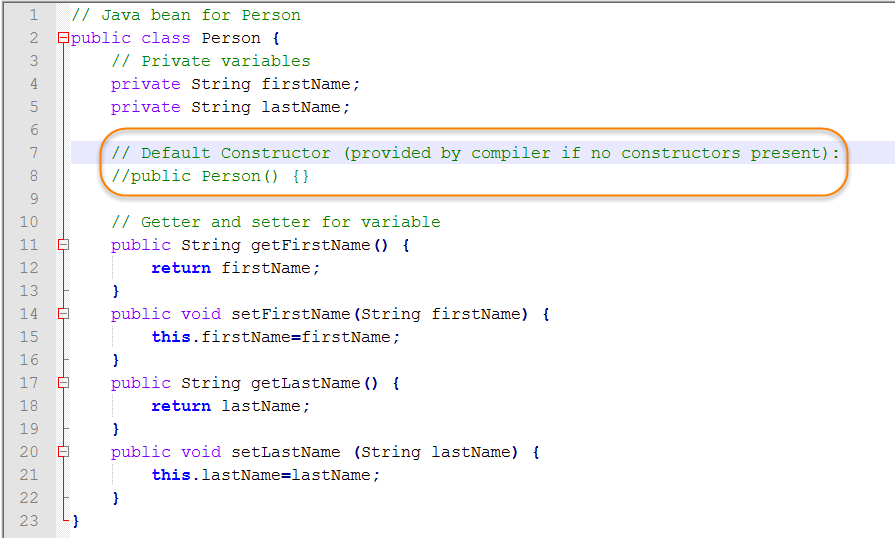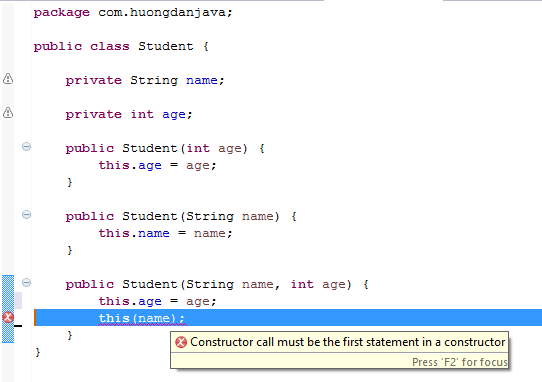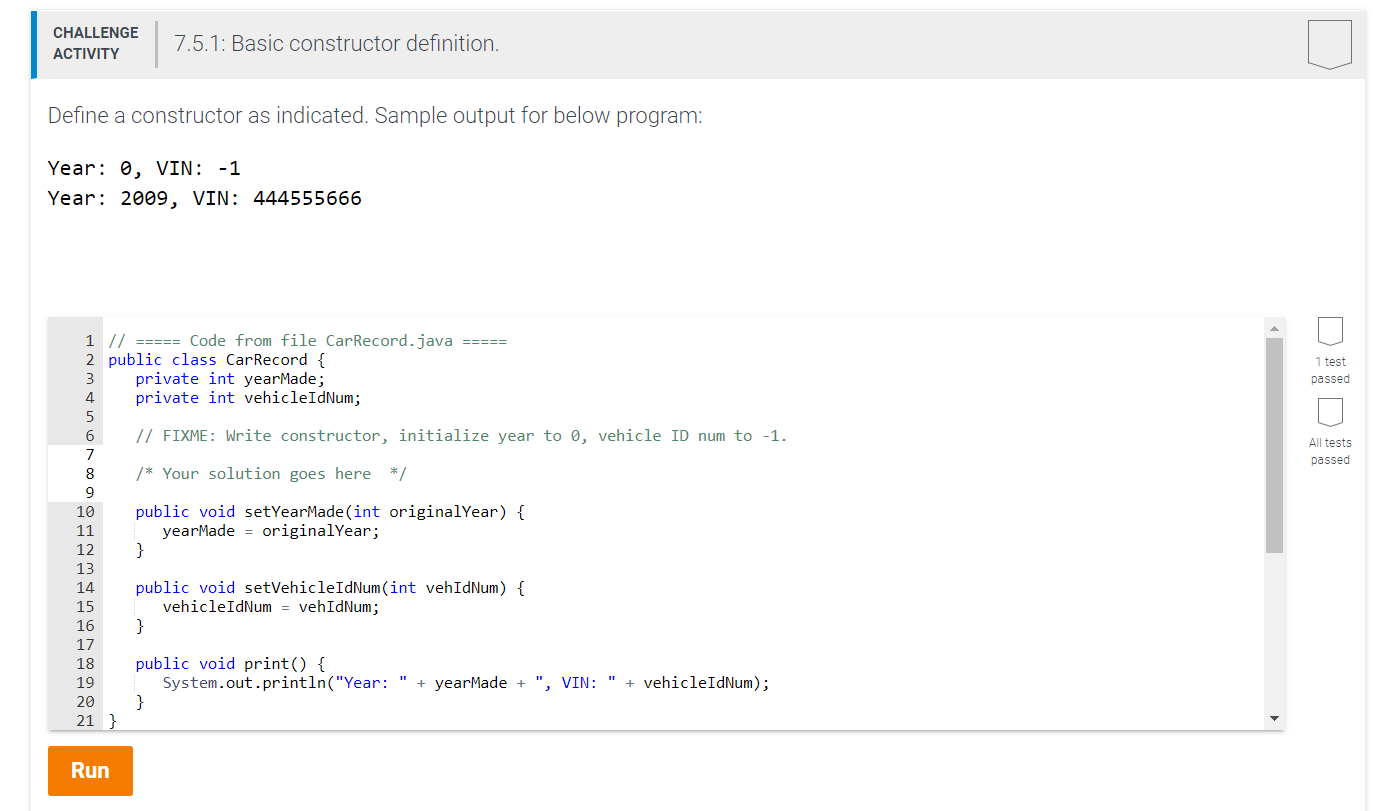

So, faultValue(d, c.plusDays(1)) is dynamic because you use c. Lombok automatically figures out whether the defaults are static or dynamic, by checking if you reference any other field. What is the empty default for a String? Is it null or ""? Only one question should be answered beforehand. In general constructor overloading can be used to initialized same or different objects with different values.Here the marked params will result in overloads, and if you write nothing further, the values passed in will be null/0/0.0/'\0'/false. In other words whenever same constructor is existing multiple times in the same class with different number of parameters or order of parameters or type of parameters is known as Constructor overloading. Constructor OverloadingĬonstructor overloading is a technique in Java in which a class can have any number of constructors that differ in parameter lists.The compiler differentiates these constructors by taking the number of parameters, and their type. Note By default the parameter passing mechanism is call by reference. ("I am from Object Parameterized Constructor.") ("I am from single Parameterized Constructor") ("I am from double Paraceterized Constructor") If any class does not contain at least one user defined constructor than the system will create a default constructor at the time of compilation it is known as system defined default constructor. They areĪ constructor is said to be default constructor if and only if it never take any parameters.

The java compiler provides a default constructor if we do not have any constructor.īased on creating objects in Java constructor are classified in two types. Method is not provided by compiler in any case. It will be called automatically whenever object is created Method should be called explicitly either with object reference or class reference It should not have any return type (even void)


Constructors must have the same name as the class within which it is defined while it is not necessary for the method in Java.How Constructors are Different From Methods in Java ? If the access specifier of the constructor is not private then an object of corresponding class can be created both in the same class context and in other class context.If the access specifier of the constructor is private then an object of corresponding class can be created in the context of the same class but not in the context of some other classes.The access specifier of the constructor may or may not be private.Constructors will not be inherited from one class to another class (Because every class constructor is create for initializing its own data members).Constructor should not be private provided an object of one class is created in another class (Constructor can be private provided an object of one class created in the same class).Because constructors will be called each and every time, whenever an object is creating. Constructor definitions should not be static.(if we write the return type for the constructor then that constructor will be treated as ordinary method). Because basic aim is to place the value in the object. Constructor should not return any value even void also.Constructor name must be similar to name of the class.Constructor will be called automatically when the object is created.if we can not create constructor of Sum class then it print " Sum: 0 " because default values of integer is zero. In above example when we create an object of "Sum" class then constructor of this class call and initialize user defined value in a=10 and b=20.


 0 kommentar(er)
0 kommentar(er)
